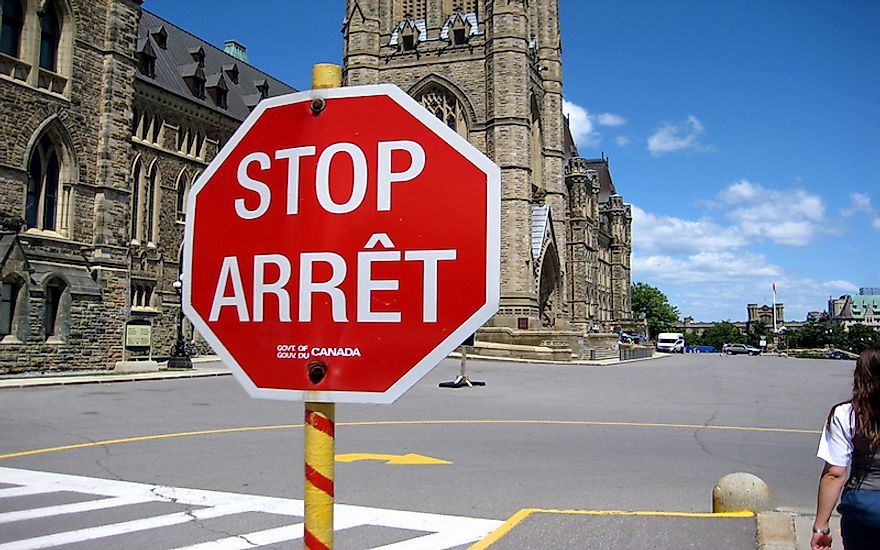Canadian Provinces/Territories By Percentage Of English Speaking Population

Canada is a multilingual country with over 60 indigenous languages spoken. English and French are the two official languages in the country, with over 86% of Canadians having a working knowledge of English. The Official Language Act of 1969 guarantees both English and French federal status. English is the most popular language in every province and territory of Canada except Quebec and Nunavut. English is the first language for over 19 million Canadians. The Canadian English contains elements of British and American English and is closely related to the variety of English spoken around the world. Canadian English was influenced greatly by both American and British English.
History Of English In Canada
English in Canada is related to important historical events. This includes the Treaty of Paris of 1763, which brought an end to the Seven Years’ War and opened up Eastern Canada to English-speaking settlers. The American Revolution between 1775 and 1783 let to a major immigration of English-speakers to Canada. English was first spoken in the country in the mid 17th century along the Atlantic Coast. Permanent English-speakers were settled in Nova Scotia and Halifax following the Treaty of Utrecht in 1713. The English-speaking population was expanded following the expulsion of the French-speaking population in the 1750s.The victory of the British in the Seven Years’ War led to the French ceding its Canadian territories to the British in the Treaty of Paris in 1763. Following the American Revolution, over 40,000 United Empire Loyalists fled to Canada and settled in Ontario, Quebec, and New Brunswick. The English-speaking settlements in the West began in the mid 19th century. The settlement was made possible by the completion of the Canadian Pacific Railway in 1885. Ontario English became the main model for the Western Canadian English. The Canadian English, just like any other language in the country, continue to evolve with few changes seen in different generations. New words and pronunciations arise over time with old expressions going out of fashion and disappearing. Currently, Newfoundland has the highest percentage of its population speaking English at 98% while Quebec and Nunavut have the lowest portion of residents who speak English exclusively, at 9% and 45% of the population respectively
Canadian English Dialect
The English-speaking settlement in Canada created as a hybrid of English with a blend of American and British English. The English spoken in Canada is a type of North American English similar to that of the Western US and General American English. The influence of the American English on the Canadians is linked to the loyalists. The English spoken in Newfoundland is distinct from that of the mainland Canada because of its origin in Southwestern England. However, English throughout Canada has uniform phonology and little diversity dialect compared to the US English.
Importance Of English Language In Canada
English has official status in Canada provided for in the Official Language Act of 1969. English is used as the official language in all government services including court proceedings and enactment of federal legislations. In the province of Quebec where French is the official language, the constitution requires that legislations in both French and English while court proceedings may also be conducted in either of the two official languages.
Canadian Provinces/Territories By Percentage Of English Speaking Population
| Rank | Canadian Province/territory | % Of Population Speaking English Most Often At Home, 2011 |
|---|---|---|
| 1 | Newfoundland and Labrador | 98.53% |
| 2 | Prince Edward Island | 95.49% |
| 3 | Nova Scotia | 95.40% |
| 4 | Yukon | 92.18% |
| 5 | Saskatchewan | 92.13% |
| 6 | Northwest Territories | 88.90% |
| 7 | Alberta | 85.73% |
| 8 | Manitoba | 84.42% |
| 9 | British Columbia | 80.49% |
| 10 | Ontario | 78.95% |
| 11 | New Brunswick | 69.21% |
| 12 | Canada (country-wide) | 64.78% |
| 13 | Nunavut | 45.45% |
| 14 | Quebec | 9.81% |











